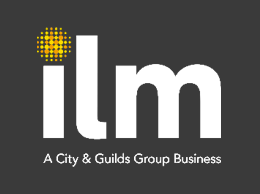According to recent research, CEOs have cited
high quality staff as the top factor that has contributed most to the growth of
their company. Interestingly, finding, hiring and retaining qualified employees
have also become one of their biggest operational challenges in managing their
company’s rapid growth.
One of the top reasons people usually give for leaving their job is more often than not, their immediate superior or management. Managing people should no longer be simply viewed as just a responsibility, but an extremely important skill that managers should constantly hone and improve to deal with the diverse personalities and cultures in a team or company.
Here are some management insights on how managers can effectively get the most out of their staff and motivate them to put in their best not just for a day – but always.
Adopt a people-based culture
There is a reason why some of the world’s top
organisations attribute their success to their people. By treating their
employees as the most valuable asset of the company, they achieved impressive
results and became more competitive across many fronts.
Employees enjoy coming to work where their contributions are valued, and morale
is increased when they are given more responsibility, autonomy and freedom.
They are more likely to articulate the company’s shared vision and bring their
best ideas to work.
Empowering staff also gives them a sense of responsibility. It motivates them
to be more independent and do what needs to be done without being told and
makes them feel they have a significant impact on their work.
Be a leader, not a manager
Many business managers are often trapped in the
daily operations of running their department / part of the business. In today’s
world, to remain competitive and stay ahead of the game a business requires
inspiring leaders who can inject enthusiasm into the work environment and make
employees excited about their job, as opposed to having staff simply executing
orders issued by management.
A great business leader moves people to extraordinary performance and is able
to communicate his vision to his staff and get their buy in. Genuine leadership
cleverly uses talents to bring about real and limitless productivity, as
employees begin to emulate and internalise their leaders’ positive attitude and
approach to work, especially when these leaders support them wholeheartedly in
whatever they do.
Encourage risk taking and innovation
When a company becomes too set in its ways, it
kills creativity and innovation within the workplace. Employees will perform
their assigned duties as contracted, with hardly any interest in achieving the
company’s vision and goals. A business that does not challenge its people to
think, create, innovate and contribute will only give rise to more people with
a ‘why rock the boat’ mentality.
Stretch and challenge
Challenge your staff by setting and exacting the highest standards, spurring them on to achieve what are seemingly impossible targets. By ensuring that everyone is working to meet these standards, you are engendering enthusiasm among the workforce and generating a competitive spirit within the company. When a company involves and ignites its people to make such stretch targets a reality, they get excited about the work and are eager to achieve the vision by maximising their own capabilities.
https://futureproof-training.co.uk/people/
info@futureproof-training.co.,uk






